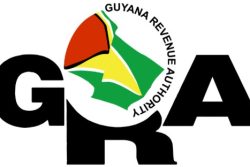Almost four years after the then President of Guyana, Donald Ramotar, launched the Small Business Bureau at the International Convention Centre in October 2013, the state-run small business support agency is yet to place a comprehensive report on its stewardship.
While the Bureau has, from time to time, provided the media with insights into aspects of its work with the local small business community, it has been unable, up until now, to produce a holistic report that would allow for a proper assessment of the extent of its impact on the small business sector.
The Bureau is still in the process of implementing a US$5 million project aimed at enhancing access to training and financing for small businesses. Named the Micro and Small Enterprise Development Project (MSED), funding is provided through the Guyana REDD+ Investment Fund (GRIF), a mechanism created for the financing of activities identified under the Government of Guyana’s Low Carbon Development Strategy (LCDS).

Stabroek Business has learnt that publication of a report covering its activities from its launch in 2013 may not be far away, though it is aware of no specific time frame for the release of the document. Meanwhile, the dissemination of information on the work of the Bureau has been confined largely to limited official pronouncements by the Bureau itself or by the Ministry of Business under whose administrative control the SBB falls.
Just recently, the Bureau disclosed through an article published in the 2017/2018 issue of the Guyana Office for Investment (Go-Invest) magazine, Guyana Invest that since 2014 it had disbursed a total of one hundred and twenty loans valued at $458.8 million for projects under the MSED initiative, a component of the overall programme specifically designed to offer incentives to micro and small enterprises in named low carbon sectors. The article lists fruit and vegetable farming and processing, aquaculture, eco-tourism, business process outsourcing, bio-ethanol, energy efficient transportation and logistics, wood processing, internet and computer-based services and art and craft as being among the sectors/sub-sectors qualifying for loan consideration under the MSED scheme.
The long-awaited report of the Bureau is expected to shed light on what would have been the reduced job-creation target for MSED projects supported by SBB financing, given the disclosure some time ago that the original target of just over two thousand jobs could no longer be met. The report would also be expected to contain progress reports on the various SBB-funded projects across the country though this newspaper has already been told that inspection of many of those projects may have been limited by a lack of capacity on the part of the Bureau.
Recently, this newspaper made a formal request to the Bureau for a comprehensive report on its work, submitting a number of questions in the process.
The Bureau, meanwhile, is reporting in the Go-Invest publication that a total of 1373 persons benefitted from its training programmes in 2016 in areas which include finance, operational management, accounting, marketing strategy and human resource development as well as hands-on vocational training skills.
Officially, the Small Business Bureau lists its “strategic focus and objectives as” raising the visibility of small businesses; making it easier for small businesses to access government services and permits; espousing policy advocacy for an improved environment for small businesses; implementing programmes to encourage small businesses to grow and develop; providing more value-added and jobs; serving as a point agency for expertise and data on small businesses and creating and facilitating sector clusters and networks for business development and innovation.
Up until now there is little hard evidence of progress by the SBB in the fulfillment of one of its key functional areas, that is, delivering on “a guarantee and commitment of 20% government procurement from small businesses.”
The recent Guyana Office for Investment magazine article, provides implementation details of other SBB projects including its Youth Biz 592 Project launched in March this year in collaboration with the Ministry of Public Security and under which eighty seven youths from depressed communities “inclusive of Sophia/Turkeyen and Angoy’s Avenue and Canje Berbice” are to benefit from “entrepreneurship training and support necessary for effecting behavioral change” required for success ‘as business owners or employees.” The programme, the Bureau says, “has since recorded a 98% success rate with a total of eighty five persons graduating and according to the Bureau financial grants are to be disbursed to the youths for whom business plans have been approved. However, while the Bureau had earlier told this newspaper that it was satisfied with the performance of its training partners, this newspaper has received reports from sources close to the project of controversy over the allocation of training contracts that have raised questions about high contract fees among other areas.






